The Proverbs of Hell 13/39: Savoureux
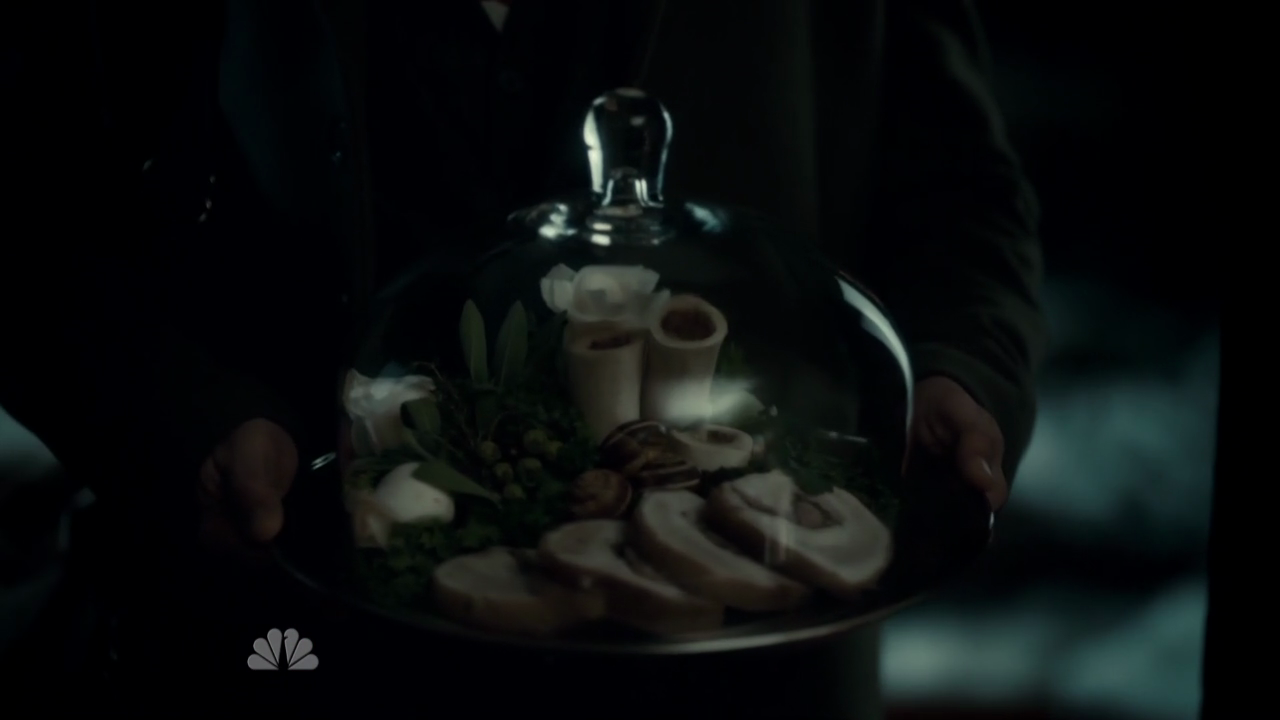 The Patreon is healthily above $320 now, so podcasts are good to go. That said, there’s been a scheduling snafu on this one, so I’m not actually sure what day it’ll post. Sorry about that.
The Patreon is healthily above $320 now, so podcasts are good to go. That said, there’s been a scheduling snafu on this one, so I’m not actually sure what day it’ll post. Sorry about that.
SAVOUREUX: I’ll just quote Fuller: “a savoury dessert appealing to diners with no interest in a sweet ending to their meal.”
Will is unambiguously hunting here, as opposed to fishing, and right on the heels of making the distinction with Abigail. There are more visceral demonstrations of the idea that Will has been pushed to the edge, but this is perhaps the clearest demonstration that this edge consists of more than just the side effects of encephalitis, also encompassing a genuine moral shift.
The first appearance of the Wendigo, aka the mature form of Will’s stag hallucinations, reflecting his understanding that the figure he’s been stalking is in fact Hannibal. What’s interesting, of course, is that Will doesn’t know that Hannibal is the copycat killer yet. His appearance here could be mere foreshadowing – that is, broadly speaking, the point of a hallucinatory cold open after all. But more to the point, it suggests that Will does not know all that he knows, and thus that his relationship with Hannibal is already motivated by a murderous desire.
One of Hannibal’s great feats of the supernatural. Not, mind you, getting Will to eat the ear, which we see in season two. Rather, making the timeline for this work. Even if we take Hannibal’s final scene with Abigail in “Relevés” as taking place before Will’s return to Virginia (despite appearing in the episode after), figuring out when Hannibal broke into Will’s house to force feed him the ear is a challenge. The answer, obviously, is that it took place in lost time.
Another clue Abigail is alive, however, is the fact that Hannibal feeds her to Will in the expectation that he’ll vomit her up, as opposed to consuming her.
HANNIBAL: What happened? Why was she afraid?
WILL GRAHAM: I hallucinated. I hallucinated that I killed her. But it wasn’t real. I know it wasn’t real.
In which Will is possessed by BOB.
More seriously, for all Will’s deterioration, his confusion about what is and is not reality is increasingly seeming to clear up. This, however, is not so much a process of rejecting his hallucinations as it is one of determining which of them are real.
The sequence in which Winston stands outside the police car whining plaintively at Will’s arrest can safely be described as “a bit fucking much.”
BEVERLY KATZ: I can’t do the silent treatment. I can’t pretend I don’t know you and I can’t pretend we don’t both know what I’m finding under your nails. You called me once because you didn’t trust yourself to know what was real. This blood is real, Will.
WILL GRAHAM: I know.
BEVERLY KATZ: Do you know how it got there?
WILL GRAHAM: Not with certainty, no.
BEVERLY KATZ: Certainty comes from the evidence. I didn’t want to find any evidence on you. I wanted to be certain about who you are. But you can’t even be certain about yourself.
Beverly is a materialist, grounding her sense of reality entirely in terms of physical observation, which gives her a clarity of vision nobody else at the FBI demonstrates save for Will. This has always been the basis of their friendship, and in its way still is even in this scene.
JACK CRAWFORD: Look me in the eye and tell me you couldn’t see he was breaking.
ALANA BLOOM: Of course I could see it! I told you not to put him out there!
JACK CRAWFORD: Every decision I made about Will Graham’s mental health was under the advisement of a respected psychiatrist, who you recommended.
ALANA BLOOM: Hannibal had to know. He had to see something was wrong.
JACK CRAWFORD: Not until it was too late. Just like the rest of us.
Alana and Jack both have fragments of the key realization, although Jack’s defense of Hannibal suggests that Bedelia played him in his entirety. Alana’s insight, for better or for worse, is due to her consistently taking the Occam’s Razor approach to Will and successfully concluding that he’s unstable and doesn’t belong in the field. Notably, this is the exact conclusion Beverly faults Will for not coming to this exact conclusion in the preceding scene.
An interesting scene, in that it’s one of the most humanizing and well-characterized sequences Alana gets, but also fundamentally one that finds her in her least interesting configuration of “the girl one,” with “girl” defined entirely in terms of relative gender cliches. Nobody would even think to write a scene where Alan Bloom cries in his car.
WILL GRAHAM: You’re flushed. You been yelling?
ALANA BLOOM: Screaming is more like it.
WILL GRAHAM I could use a good scream. I can feel one. Perched under my chin.
ALANA BLOOM: Let it out.
WILL GRAHAM: I’m afraid if I started, I… wouldn’t be able to stop.
The relatively slow start of this episode, which luxuriates in slowly working through the procedural detail of Will’s arrest, serves to bring out the existential horror of what’s happening to him. Fittingly, this is not generally framed in the Kafkaesque tradition, but rather in terms of Will’s doubts about what he does and doesn’t know to be real.
WILL GRAHAM: I’m surprised Jack let you in here. Given my romantic overtures.
ALANA BLOOM: Jack doesn’t know about your romantic overtures. Didn’t know.
WILL GRAHAM: Guess you dodged a bullet with me.
ALANA BLOOM: I don’t feel like I dodged a bullet. I feel wounded.
An echo from the future? “Wounded” is not a state the show has spent a lot of time on, but it’s an interesting one, rooted in the same carnality of flesh that forms the show’s central metaphors, but grounded in loss and trauma instead of in food. The question of trauma is always a tricky one for Hannibal, which has such a fundamental inclination towards aestheticizing mutilation that it can lose sight of the material aspects of its horror as opposed to the merely conceptual ones.
HANNIBAL: Despite the overwhelming evidence, I still find myself searching for ways Abigail could still be alive.
The rare Hannibal statement with literally no truth value whatsoever.
BEDELIA: Young people are supposed to be the lenses through which we see ourselves living beyond this life.
HANNIBAL: I think of my earliest memory and project forward to what I imagine will be my death. I never think about living beyond that span of time. Except by reputation.
Hannibal, when pressed on fundamental values, demonstrates two. The first is hedonism, hence his disinterest in a non-physical life; the second artistry, hence the possibility of reputation. The less obvious and thus more interesting point is that Hannibal dates his span to his earliest memory, as opposed to his birth. He is only that which experiences and is self-aware.
The show’s dodgy timelines that reflect character ambiguity are one of its most endearing (if potentially unintentionally so) thematic traits. Here we have the mother of them. The question: when does Hannibal decide to frame Will? “Relevés” gives the strong impression of Hannibal framing Will out of desperation, and a bit reluctantly, a seemingly spur of the moment decision. Fuller, generally speaking, endorses this sort of approach, emphasizing in interviews that his vision of Hannibal is spontaneous, as opposed to someone with detailed plans he knows exactly how will play out. But the fishing lures complicate things. Hannibal was shown messing with them all the way back in “Œuf,” in one of the clips posted to the web in lieu of the episode, a detail that makes clear that this is when the human remains are added (at least for the first two victims). While possibly a deeply indirect attempt at forcing Will into cannibalism, the more likely assumption is that Hannibal is intending to frame Will as of no later than that episode.
Two obvious possibilities exist to reconcile the facts. The first is that Hannibal was moved away from framing Will by dint of their emerging friendship as of “Fromage,” then moved back towards that plan when Will forced his hand by starting to figure out the murders. The second is that Hannibal simply maintained the option of framing Will as a means of playing the field. Neither is entirely satisfying; the first renders Hannibal not so much spontaneous as fickle, while the second is a manipulative master plan in all but name. For my part, I am inclined towards the latter, as after a point one is simply forced to ascribe at least the broad outline of a master plan to Hannibal. He may not have a specifically intended outcome, but he is at least aware of probabilities. As he admits to Abigail, he hopes.
By and large, however, it would be much tidier if the “Œuf” scene weren’t present.
JACK CRAWFORD: My biggest fear is learning you knew what you were doing all along.
WILL GRAHAM: Don’t have to be afraid of that, Jack. But there is something you should be afraid of and that’s whoever is doing this to me.
JACK CRAWFORD: Someone is doing this to you? Is that what this is? A set up?
WILL GRAHAM: They’ll be close to you. It could be someone here. Working with you. They know the cases. They know forensics. They know I’m unstable.
JACK CRAWFORD: Do you hear how paranoid you sound?
WILL GRAHAM: Or it could just be you. Then I’m pretty much screwed, aren’t I?
Will, of course, exemplifies the maxim that it’s not paranoia if they really are out to get you. He’s still in the wrong stage of things, however, observing the evidence and reasoning the sort of person who possibly could do it as opposed to looking at the simple design of what’s been done to him. The latter, notably, would never lead him towards Jack.
JACK CRAWFORD: Dumb luck and bad bookkeeping. It’s how Will said he caught Hobbs. How would you say he caught Hobbs?
HANNIBAL: We were looking through the files and it was as if Will plucked his name out of a hat, based on little more than an incomplete address.
ALANA BLOOM: That’s what Will does. He makes those kinds of leaps.
JACK CRAWFORD: Allow me to play the devil, Dr. Bloom. This clock test. Would Will Graham know how to fake it?
Jack’s in over his head playing the devil in this company, of course. Actually, Jack’s pretty much just in over his head here, seemingly pursuing multiple contradictory theories of what’s going on with Will, and doing precious little to narrow down among them.
HANNIBAL: Hello, Will. How are you feeling?
WILL GRAHAM: Self aware.
It is occasionally tempting to simply let a quote hang there, twisting in the light. Few as much as this, a line that is exquisite in its noise and clarity.
WILL GRAHAM: I know who I am.
HANNIBAL: All sense of who you are has been distorted by your illness. You know who you are in this moment. That isn’t always the case.
Hannibal is at this point staging a confrontation with Will on a level of primordial consciousness akin to the Master/Slave dialectic in Hegel. Central to it is his characteristic offer of ascension and rebirth – there is a second Will that Will has the option of becoming. He is not that person in this moment, but rather its potentiality.
Hannibal does not consistently seem conscious of the full depths of the game he’s playing here, driving Will towards identifying himself as the killer with such determination that he does not seem to appreciate the identification Will is in fact on the brink of.
HANNIBAL: If you followed the urges you kept down for so long, cultivated them as the inspirations they are, you’d become someone other than yourself.
WILL GRAHAM: I know who I am. I’m not so sure I know who you are anymore.
At last, Hannibal finds himself consumed by Will’s vision, given a fixed and defined place within his system. In this, it is worth looking at Hannibal’s seeming error. He recognizes Will as having imagination, but mistakes his inspirations and urges for his own, fundamentally failing to appreciate the rich grandeur of Will’s interior world.
HANNIBAL: You said it felt good to kill Garret Jacob Hobbs, Will. Would it feel good to kill me now?
WILL GRAHAM: Garret Jacob Hobbs was a murderer. Are you a murderer, Dr. Lecter?
HANNIBAL: What reason would I have?
WILL GRAHAM: You have no traceable motive, which is why you were so hard to see. You were just curious what I would do. Someone like me. Someone who thinks how I think. Wind him up and watch him go.
As befits the show’s more gnostic instincts, Hannibal acts not so much as a Satanic figure as he does a demiurge – a lesser god ruling over a lesser creation. The demiurge does not create the universe, but rather shapes it from existing ingredients, and is a figure of distinct ambiguity, blamed in gnosticism for the fallen state of the world. The word translates to “craftsman” or “artisan,” but frankly, “chef” would work just as well.
BEDELIA: You have to be careful, Hannibal. They started to see your pattern.
HANNIBAL: What pattern would that be?
BEDELIA: You form relationships with patients that are conducive to violence. That pattern. Under scrutiny, Jack Crawford’s beliefs about you could unravel.
Here, at last, we establish something like the limits of what Bedelia does and does not understand about her patient. As expected, she does not fully grasp what he is. She has some level of discomfort in the direction of the truth, as evidenced by her reluctance to dine with Hannibal, but she does not directly suspect that he’s a cannibalistic serial killer. She does, however, understand that he views himself as a demiurge. Put another way, she understands that he has a design, but not yet what it is.
HANNIBAL: Hello, Will.
WILL GRAHAM: Dr. Lecter.
And so the first season ends with well-crafted panache – a savage inversion of the iconic interaction between Hannibal Lecter and Will Graham. After an extended time tarrying in the negative space of Red Dragon, expanding a few fleeting mentions into a full-blown story, the show veers into territory that exists entirely outside the realm of what the books could even conceive, declaring its full independence from the source material. The question of how well it works to put Will in prison but aware of who Hannibal is will occupy no small part of the next few entries, but as an ending to the first season of Hannibal it is a tour de force – an ending that pays off the season’s insistence on patience and a slow burn by suddenly revealing flavors that the ingredients simply were not capable of presenting when they first appeared.

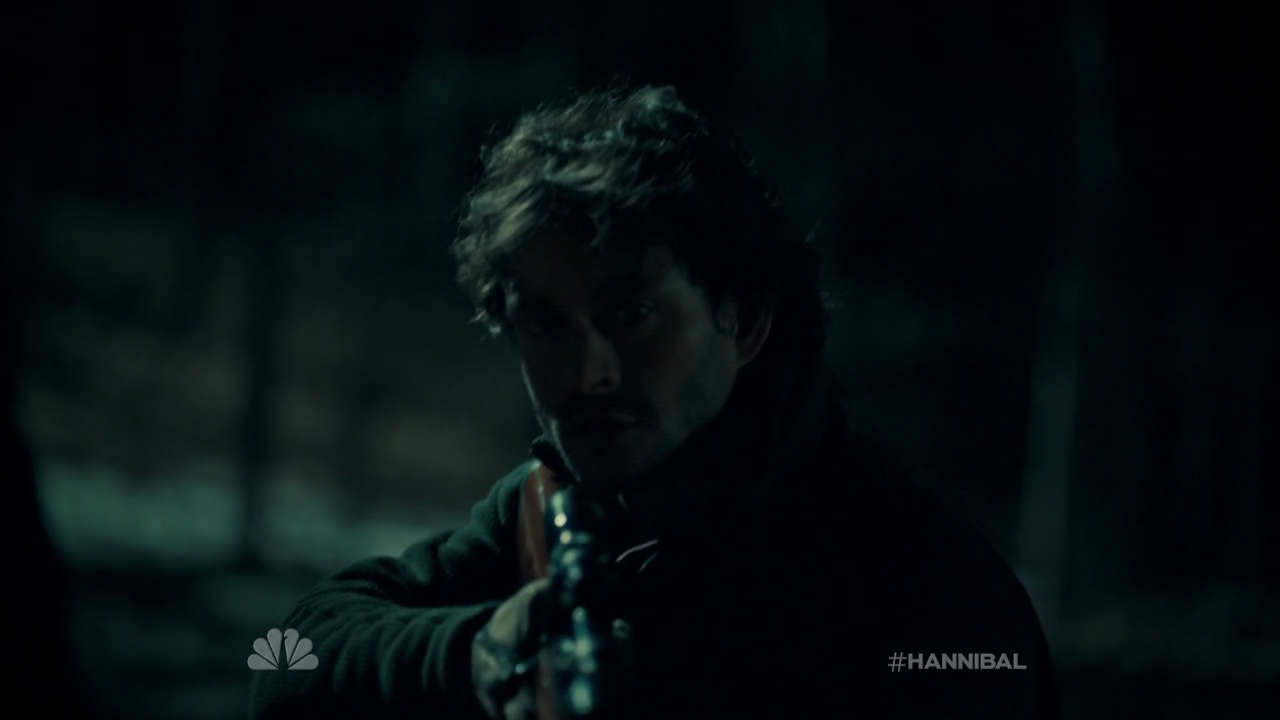
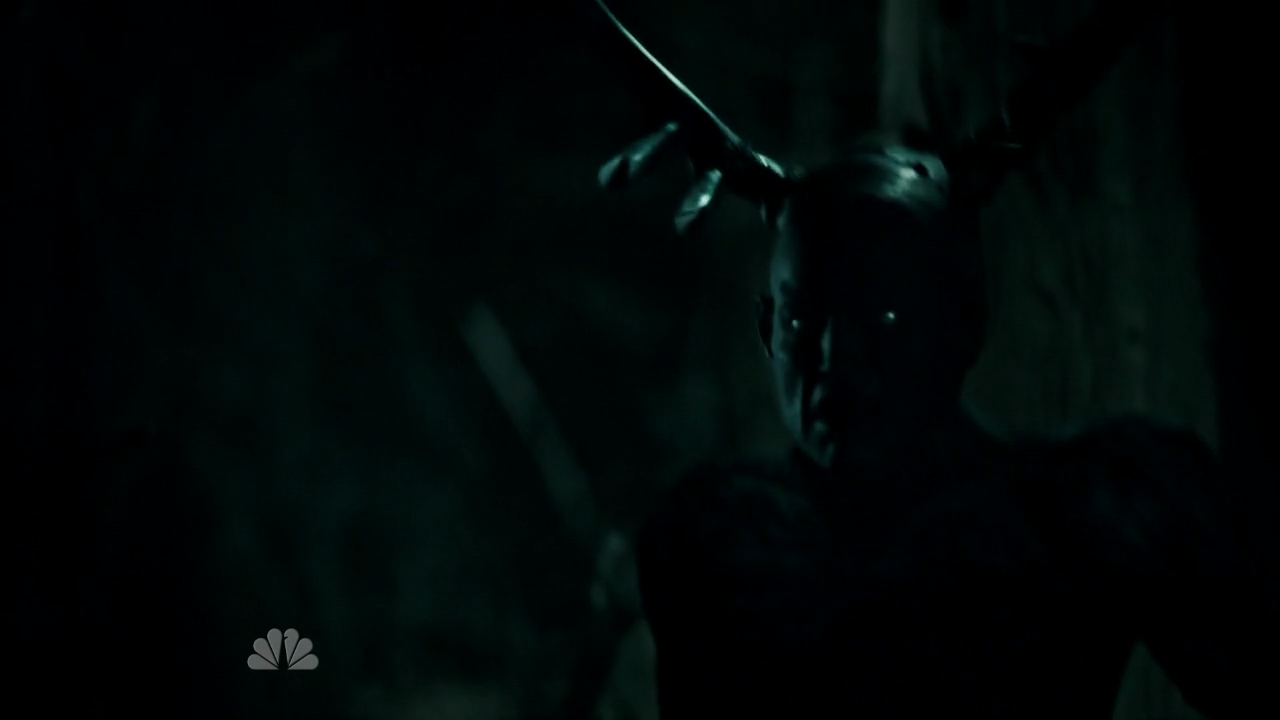
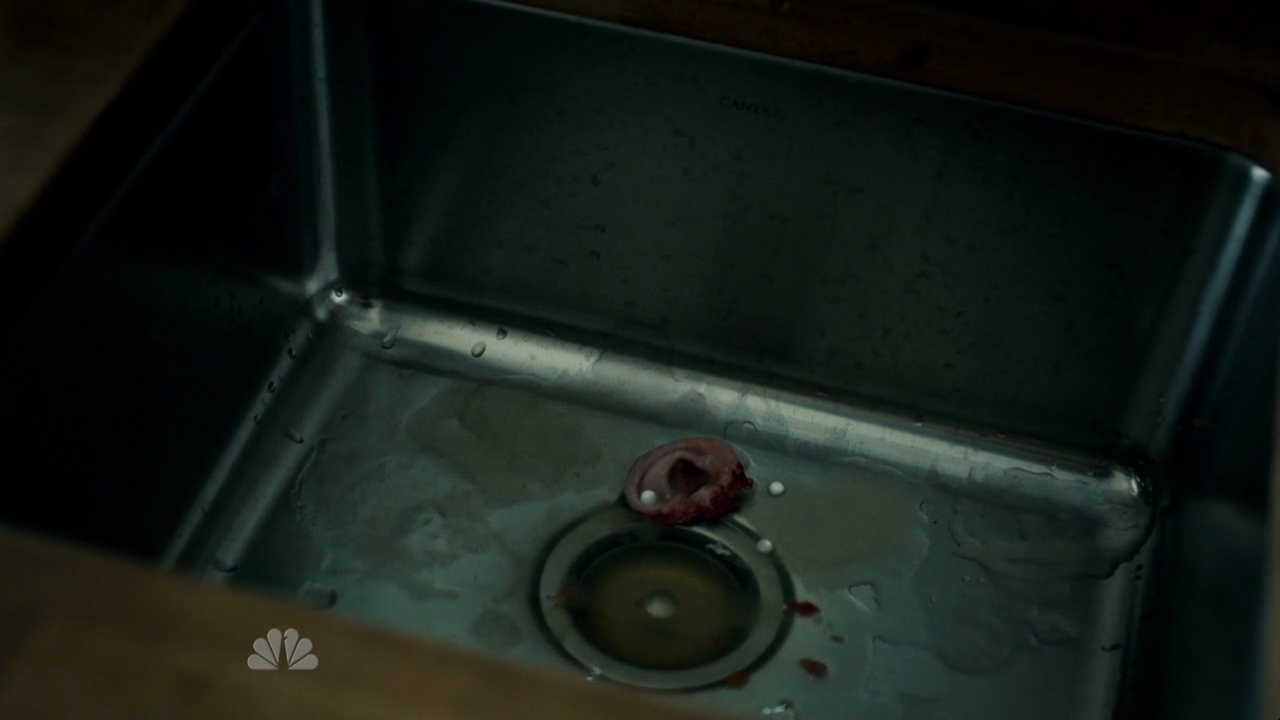
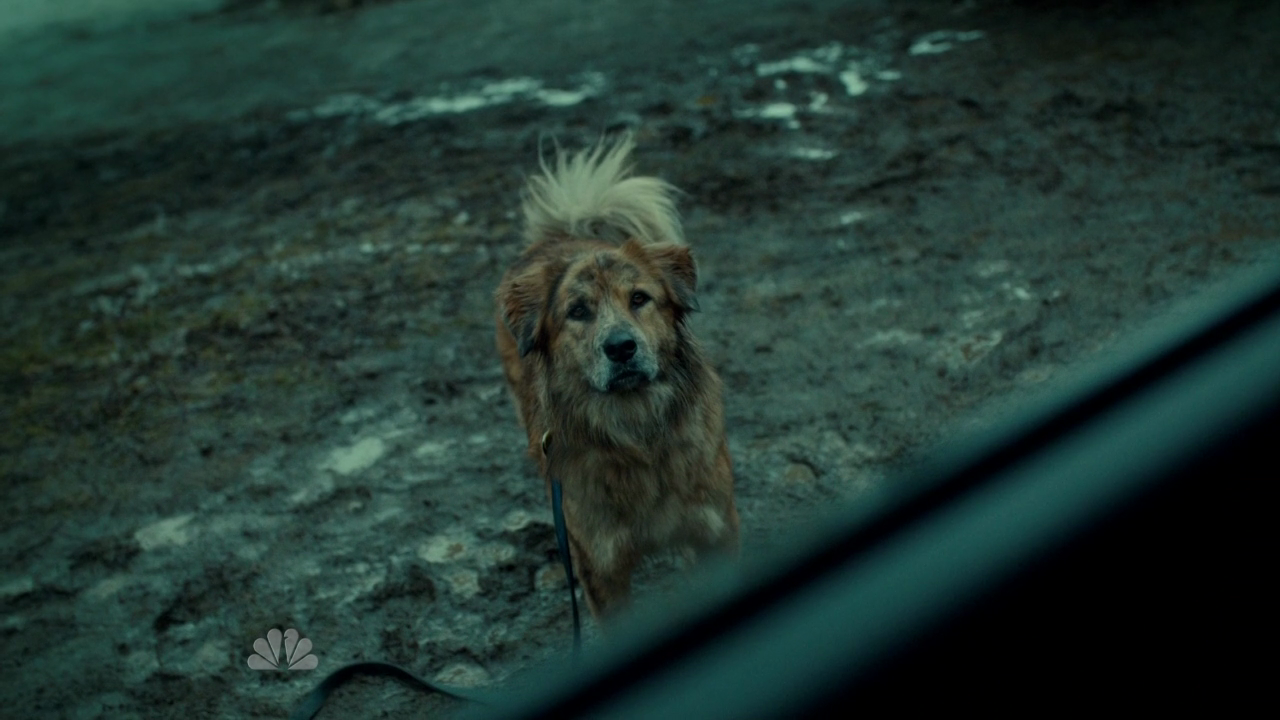
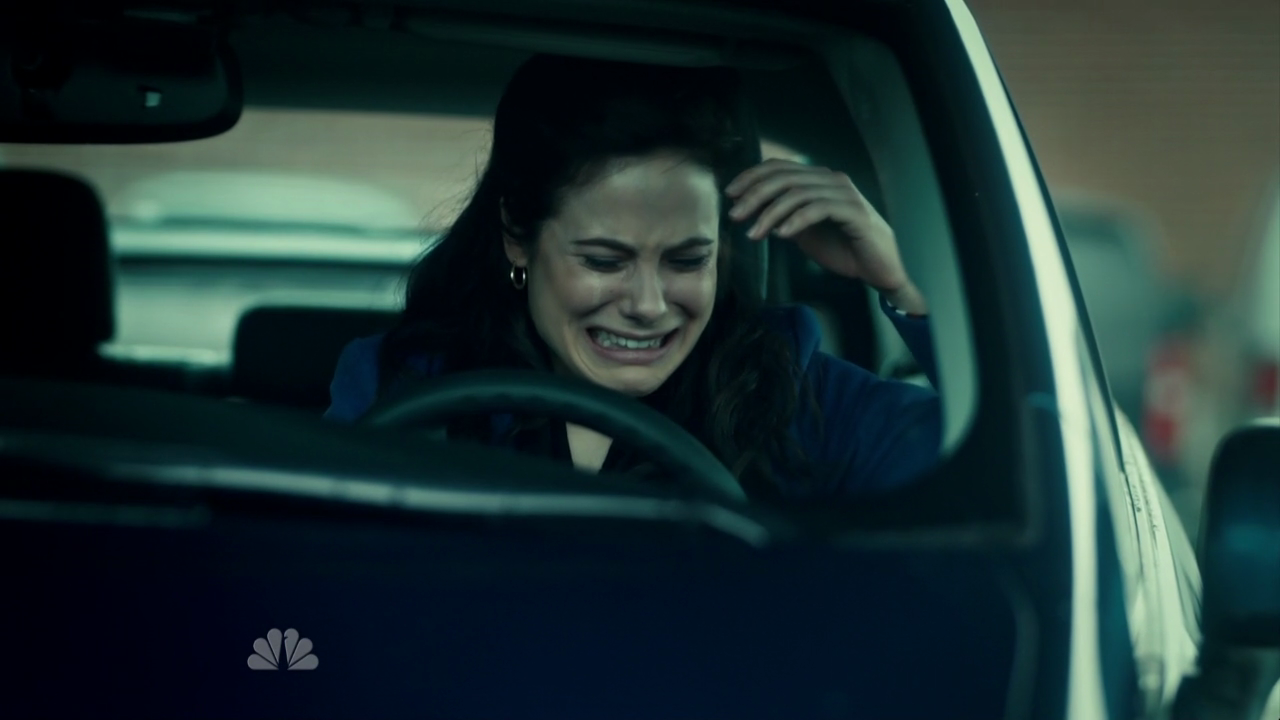
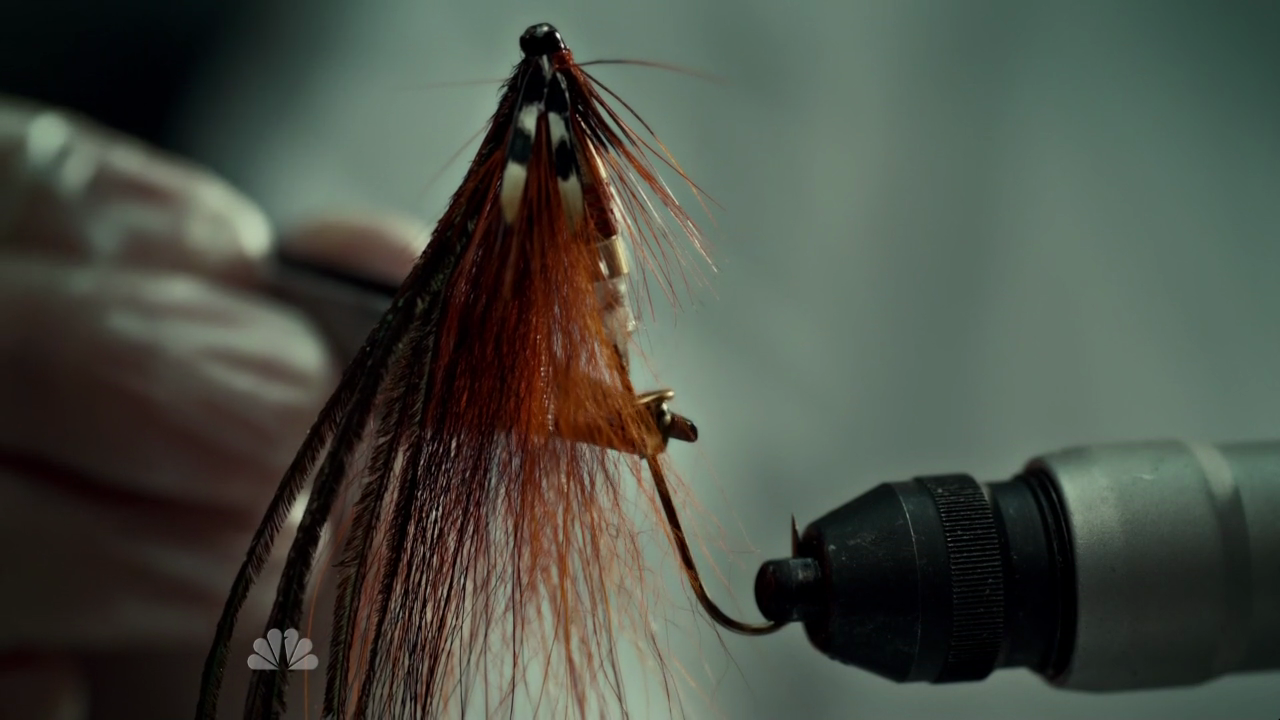
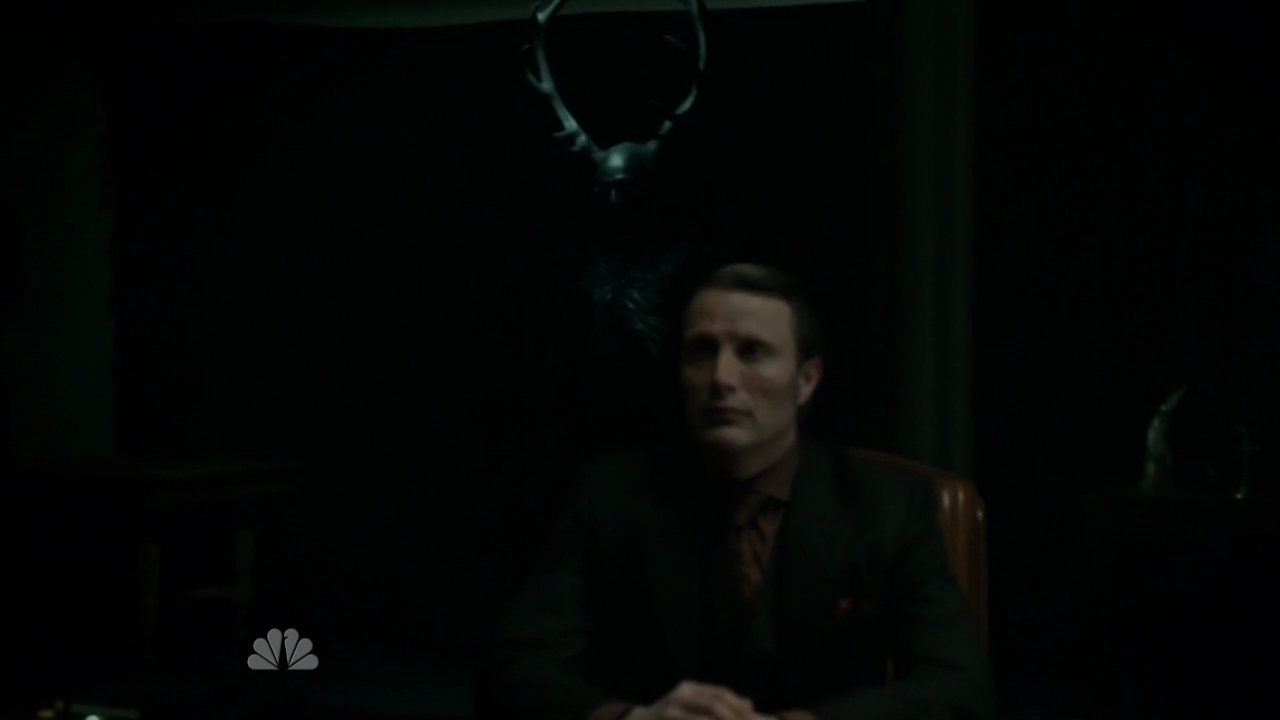
June 20, 2017 @ 9:33 am
“Hannibal does not consistently seem conscious of the full depths of the game he’s playing here, driving Will towards identifying himself as the killer with such determination that he does not seem to appreciate the identification Will is in fact on the brink of.”
Which would be…? (I’ll understand if you want to keep that card close to your chest for the moment).
“He recognizes Will as having imagination, but mistakes his inspirations and urges for his own, fundamentally failing to appreciate the rich grandeur of Will’s interior world.”
Ah, yes. If Hannibal indeed offers initiations and the possibility of ascension, he simultaneously tries to direct it, at least in Will’s case. If he was a gardener instead of a chef, he wouldn’t just help the Will tree grow to its fullest potential, but try to arrange it into his own shape. Or, if he’s the devil, his deals are always designed to benefit himself (until the mortals inevitably find a way to cheat him out of his dues). That’s a nice reconciliation between your reading of him as an ascended being offering ascensions to others, and my own, in which Hannibal’s demiurgic and manipulative aspects seem to play a much larger role.
If Will has a potential to become a murderer, it’s definitely not the amoral murderer in Hannibal’s vein, but rather an wrathful angel, protecting or avenging the victims (this will become more visible in the second season). It is therefore fitting that their shared murder is of Dollarhyde. But that’s a matter for a later entry.
June 20, 2017 @ 10:32 am
Oh, one more thing:
“But the fishing lures complicate things. Hannibal was shown messing with them all the way back in “Œuf,” in one of the clips posted to the web in lieu of the episode, a detail that makes clear that this is when the human remains are added (at least for the first two victims).”
I don’t recall the scene exactly, but another possibility could be that it was only meant to set up the lures and show that Hannibal noticed them. If that had been the case, he could have inserted the human remains around the time he fed Will Abigail’s ear.
June 20, 2017 @ 10:33 am
I love how the “reality” created by dr. Lecter is so well-crafted and persuasive that it almost asserts itself as the true reality. His artistic abilities are indeed praiseworthy. To craft a story so powerful that it becomes accepted reality… Like Ollivander said of Voldemort: the things he accomplished were horrible, but still great. It’s quite possibly the best depiction of manipulation and gaslighting I saw in any kind of fiction.
The only person who didn’t fall in love with Hannibal’s story is Will. His supension of disbelief got broken, he got thrown out of the story and saw it for what it really was: words, hanging in the air. His efforts then become focused on making everybody see that there is a man behind the curtain. That the accepted reality was crafted by an author. Reality cannot be changed. A story can.
June 20, 2017 @ 10:41 am
He’s the demiurge and the central character, of course he has significant power to warp reality and dictate his own narrative. In the world of the story, they’re one and the same.
What’s interesting about Hannibal’s dual role as a satanic and demiurgic figure, is that if he wants to give other characters knowledge, he has to diminish his own power. Everything goes well for him as long as he only manipulates Will, but he wants to bring Will to his level, so at some point the veil of lies has to be removed, leaving Hannibal more vulnerable to Will’s plans.
June 20, 2017 @ 2:14 pm
That’s very true. I never thought about it before. Thanks for that insight! So giving other characters knowledge would be equivalent to giving them some power over the narrative. Elevating them, perhaps, to supernatural beings akin to him. Being a god must feel lonely.
I feel like Hannibal’s “reality” – a story – ultimately fails because he didn’t really craft a plausible role for himself in it. In his story Will is the murderer, Jack is the hero and so on. But Hannibal himself is meant to be a great therapist who nonetheless didn’t notice for months that his patient is unravelling. It’s just not believable. It’s out of character. The “person suit” he crafted for himself in this story is too small for him to fit in it. Just look how close Alana and Jack come to noticing it.
It’s like Hannibal can fit perfectly well into stories crafted by other (FBI, the city’s rich elite etc.). But when he tells his own story he just can’t force himself to make his own role smaller, less visible, more believable. He creates characters for everyone else. He creates a self-insert for himself. And that’s what Will realizes. What happened to him didn’t happen organically. It happened by authorial fiat. And so he ascends. He steps out of the story and grabs a pen to correct it.
(I don’t know if any of that makes sense, but there you go).
June 21, 2017 @ 7:36 am
(I often get the same feeling, but then if a comment on Hannibal makes 100% sense… what’s the point?)
And you’re very right about the crafting of Hannibal’s person suit. Someone predisposed to read Hannibal as a love story (i.e. me) might say this works a bit like seduction: he covers himself, but leaves a tiny bit revealed in the hopes that someone (read: Will) will want to peel the whole outer layer off and he will be seen as he is.
July 9, 2017 @ 4:05 am
It was such a pleasure to read these 13 posts–very insightful analysis! I look forward to more!
November 9, 2020 @ 8:20 am
today I watched this movie. Am I too old-fashioned 🙁